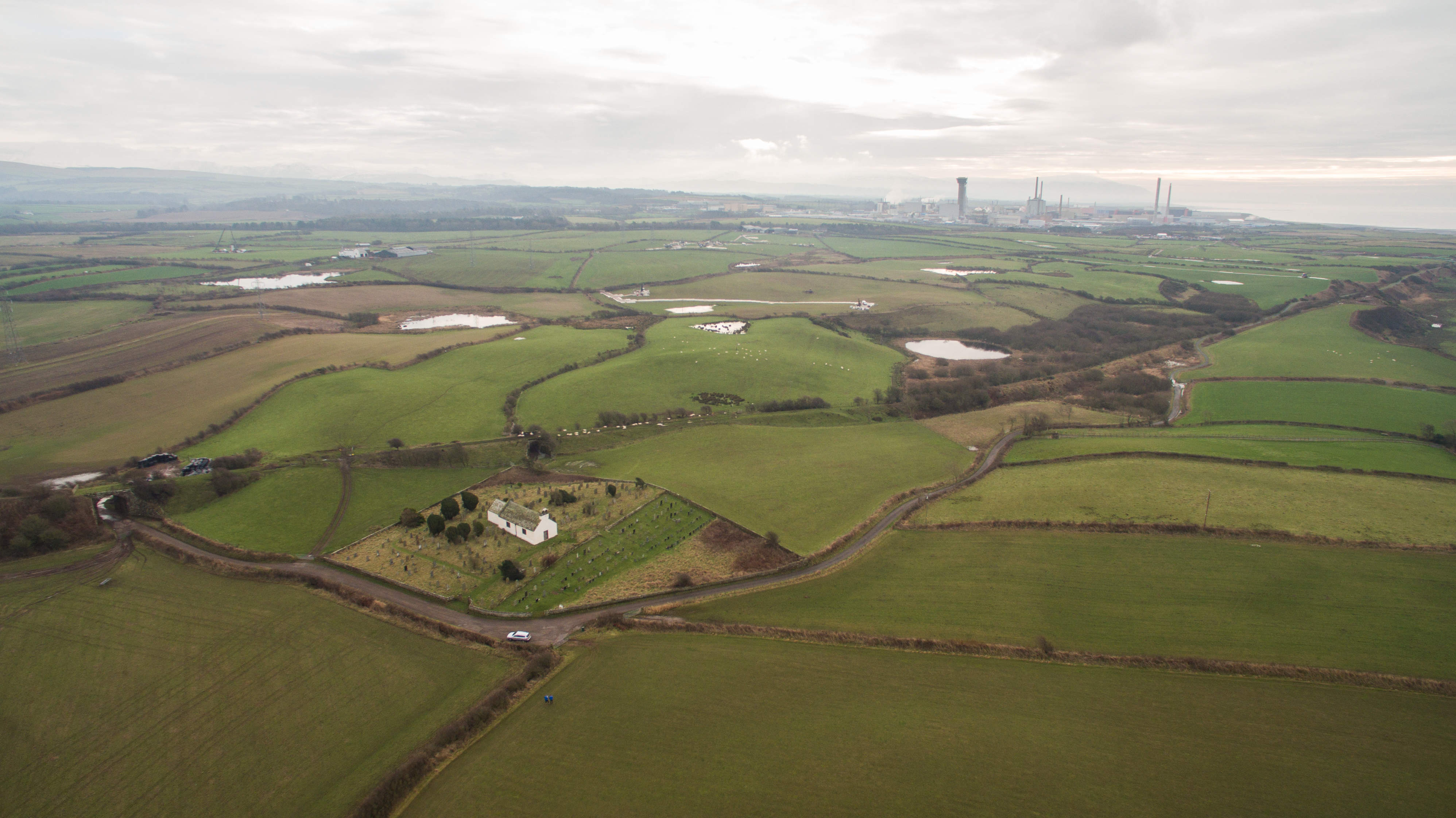The GMB trade union has called on the government to step in and secure the future of the Moorside nuclear power plant project after Toshiba announced it will wind-up its UK nuclear business NuGen

The land in Cumbria where the proposed Moorside nuclear power station could be built (Credit: NuGen)
The future of the Moorside nuclear power plant project has been dealt a major blow after owner Toshiba announced it will close down its UK nuclear business.
The Japanese multinational says it will wind-up NuGeneration Limited – more commonly known as NuGen – after failing to find a buyer for the £15bn scheme in Cumbria, which was expected to provide 7% of the UK’s electricity once coal power ends.
It had been in discussions with Korea Electric Power Corporation for about 18 months but confirmed “it had not been possible to successfully conclude those negotiations”.
The GMB trade union said the UK government had “blood on its hands” because it should have taken a stake in the plant “rather than leaving this vital project at the mercy of foreign companies”.
In a statement released today (8 November), Toshiba said: “NuGen has retained a team to support the implementation of a winding-up process and will work with Toshiba and its other stakeholders.
“Whilst NuGen will not be taking the project forward, the Moorside site in Cumbria remains a site designated by government for nuclear new build, and it is now for the Nuclear Decommissioning Authority – as the owner of the site – and the government to determine its future.
“NuGen would like to pay tribute to colleagues, its shareholder Toshiba, and to the other stakeholders, and many various friends of the project both in Cumbria and beyond, who have supported NuGen’s efforts through its development phase and throughout the proposed sale negotiations.”
How the future of the Moorside nuclear power plant project was put in doubt
The long-mooted power station was originally expected to provide power to about six million homes by 2025.
It would have included three nuclear reactors combining for an output of 3.4 gigawatts (GW).
NuGen was one of three companies that bought the rights to a 190-hectare plot north of the Sellafield nuclear plant, also in Cumbria, in October 2009 for £70m.
It was billed as the largest ever private sector investment for the county in North West England, bringing jobs, and was named Moorside in December 2011.

Toshiba took over the other two firms’ stakes over the next four years, but announced it was exiting the international nuclear market last year after its American nuclear technology subsidiary Westinghouse Electric Company suffered financial difficulties.
Kepco was named as the preferred bidder in December 2017 but it lost this status in July after repeated delays in signing a final agreement.
Toshiba made 60 staff in its 100-strong NuGen workforce, based in Manchester, redundant in September as it struggled to continue funding the project.
In today’s statement, Toshiba said its board had made an “economically rational decision” to fully withdraw from the project and wind-up NuGen by the end of January.
Union wants government to secure the future of the Moorside nuclear power plant
Trade union GMB has consistently called for the UK government to scrap the Nuclear Decommissioning Authority – which was set up in 2004 to decommission and clean-up the UK’s civil nuclear legacy – and replace it with a re-tasked Nuclear Development Agency.
This would oversee new projects like Moorside and help to create thousands of jobs and apprenticeships, it said.
GMB national secretary Justin Bowden said: “The British government has blood on its hands as the final sad but predictable nail is banged into the coffin of Toshiba’s jinxed jaunt into nuclear power.
“Relying in this way on foreign companies for our country’s essential energy needs was always irresponsible.
“Add to that the multiple opportunities to step in and take control that were missed or ignored.
“In the wreckage that passes for a joined up UK energy policy, the question now is whether government has finally learned the mistakes of Moorside?
“A new nuclear power station in West Cumbria remains vital for the UK’s future energy security and requires urgent action.
“The Nuclear Decommissioning Authority must be immediately given a role for nuclear development and tasked with developing a small modular nuclear reactor on site, tapping into the wealth of nuclear experience and expertise in the area and ensuring we have security of supply in years to come.”
Highlighting the need for nuclear, the union pointed how in the 12 months to 7 March 2018, every one in 5.6 days – or 65 days in a year – was a “low wind day” when the output of the UK’s installed and connected wind turbines produced less than 10% of their capacity for more than half the day.
For 341 days in the year, solar output was below 10% of installed capacity for more than half the day.


